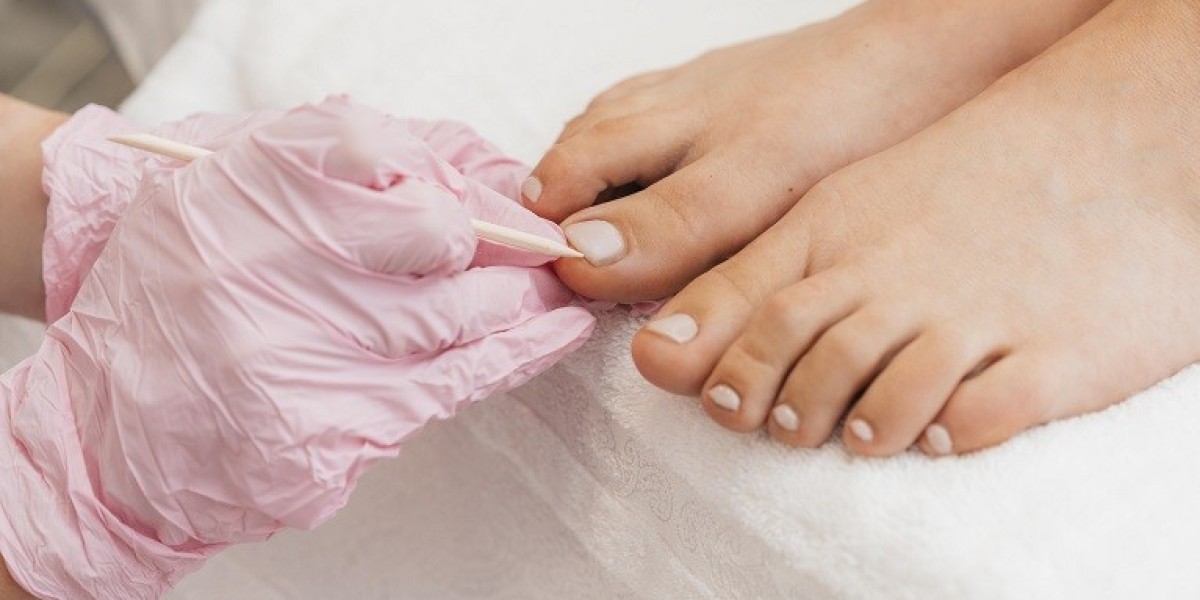Ingrown toenails can cause significant discomfort, inflammation, and even infection if left untreated. When medications and home remedies fail to provide relief, surgical intervention becomes necessary. In Riyadh, a variety of surgical techniques are used to address this common foot problem effectively. Understanding the options available helps patients make informed decisions and prepare for the procedure.
Overview of Common Techniques in Riyadh
Among the surgical treatments, Ingrown toenail surgery in Riyadh(جراحة الظفر الناشب في الرياض) has evolved to offer safe, effective, and minimally invasive options. These methods aim not only to alleviate pain but also to prevent recurrence, ensuring lasting comfort and foot health. Different clinics adopt approaches based on the severity of the condition and the patient's individual needs.
Partial Nail Avulsion with Chemical Matrixectomy
One of the most widely used techniques is the partial removal of the affected nail edge (partial nail avulsion) combined with a chemical matrixectomy. This procedure removes the problematic part of the nail and destroys the nail matrix cells responsible for regrowth using a chemical agent like phenol. The process reduces recurrence and promotes healing. It is usually performed under local anesthesia and takes a short time.
Total Nail Avulsion
In more severe or recurrent cases, total nail avulsion might be recommended. This involves removing the entire nail to allow a new, healthier nail to grow. While recovery may take longer, the technique can provide relief when partial avulsion isn't sufficient. Riyadh clinics employ advanced sterilization and anesthesia techniques to ensure patient comfort during this procedure.
Surgical Excision of the Nail Matrix
This approach includes surgically removing the nail matrix area that produces the nail, either partially or completely. It’s often used when chemical matrixectomy isn’t suitable. The surgical excision prevents the regrowth of the ingrown section, greatly reducing the chance of recurrence. Proper wound care and follow-up are essential for successful healing.
Laser-Assisted Ingrown Toenail Surgery
Laser technology is an emerging, popular option in Riyadh clinics. It uses precise laser energy to remove the problematic nail tissue and cauterize the matrix. This minimally invasive method often results in less pain, minimal bleeding, and quicker recovery times. Laser surgery can also reduce the risk of infection and improve cosmetic outcomes.
Comparison of Techniques: Benefits and Considerations
Each surgical approach has its benefits and potential downsides. Partial nail avulsion with chemical matrixectomy is generally less invasive and has a quicker healing time, making it a preferred choice for many patients. Total nail avulsion is more radical but useful for stubborn cases. Laser surgery offers a modern alternative with reduced discomfort but might not be available everywhere. Selecting the right approach depends on individual factors such as severity, patient health, and surgeon expertise.
Preparing for Surgery and What to Expect
Before undergoing any ingrown toenail surgery in Riyadh, patients typically receive detailed instructions regarding hygiene, medication, and what to expect during the procedure. The surgery is usually performed on an outpatient basis under local anesthesia, meaning patients can go home the same day. Post-operative care, including dressing changes and activity modifications, is essential for smooth recovery.
Aftercare and Preventing Recurrence
Effective aftercare is crucial to ensure optimal healing. Patients are advised to keep the foot clean and dry, avoid tight footwear, and follow all care guidelines provided by their medical team. Many clinics in Riyadh provide comprehensive aftercare advice and follow-up visits to monitor healing. Preventing recurrence involves proper nail trimming techniques and foot hygiene.
Conclusion
Understanding the popular Ingrown toenail surgery in Riyadh techniques empowers patients to approach treatment with confidence. Whether opting for partial nail avulsion, total nail removal, or laser-assisted methods, Riyadh clinics emphasize patient comfort and long-term results. Consulting with a qualified specialist ensures personalized care tailored to each individual’s needs.
Frequently Asked Questions
What is the recovery time after ingrown toenail surgery in Riyadh?
Recovery typically takes 2 to 4 weeks, depending on the technique used and individual healing rates.
Is ingrown toenail surgery painful?
Local anesthesia is used during the procedure, so pain during surgery is minimal. Some discomfort or soreness may occur during recovery.
Can ingrown toenail surgery in Riyadh prevent recurrence?
Yes, especially with techniques like chemical matrixectomy or laser surgery designed to prevent nail regrowth in affected areas.
Are there non-surgical options available?
Mild cases can sometimes be managed with home care and medications, but surgery is recommended for persistent or severe ingrown toenails.
How do I prepare for surgery?
Patients should keep their feet clean, avoid applying nail polish, and follow any specific instructions from their healthcare provider.
Is laser treatment safe for all patients?
Laser surgery is generally safe but may not be suitable for everyone; a medical evaluation is necessary to determine candidacy.






